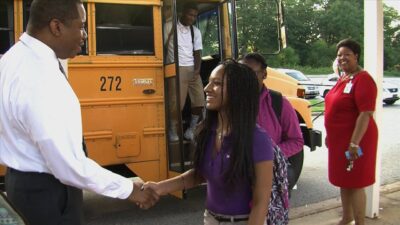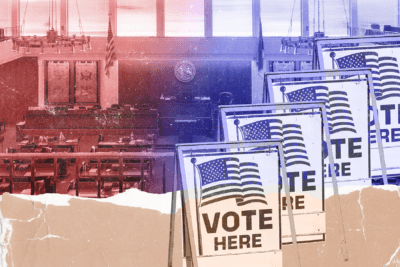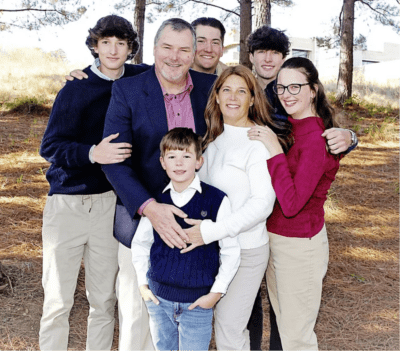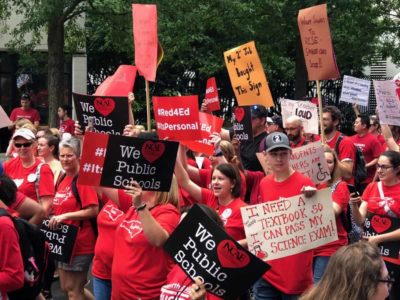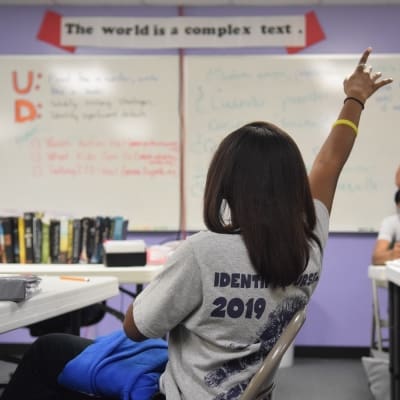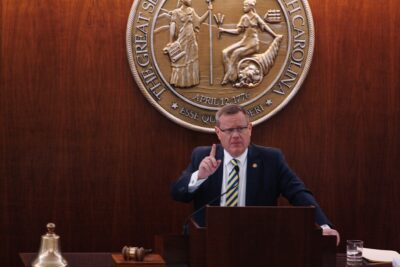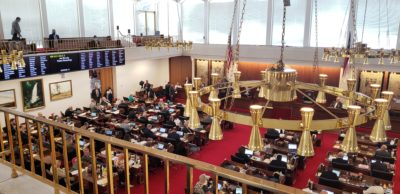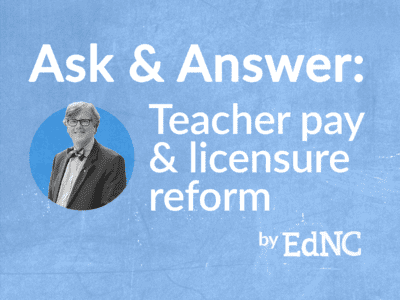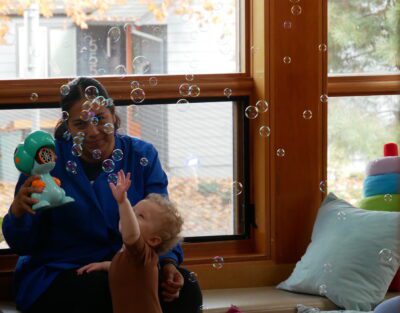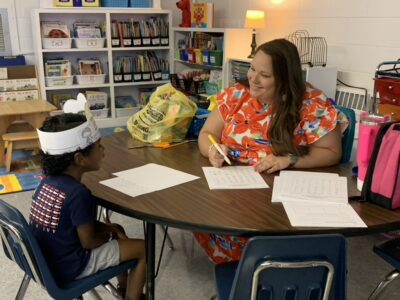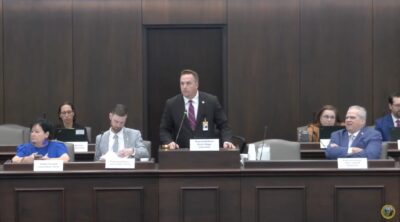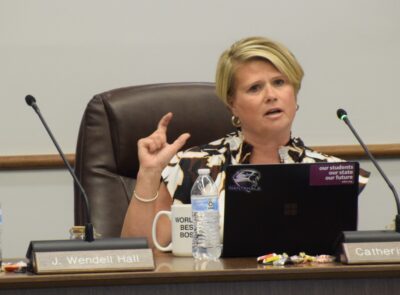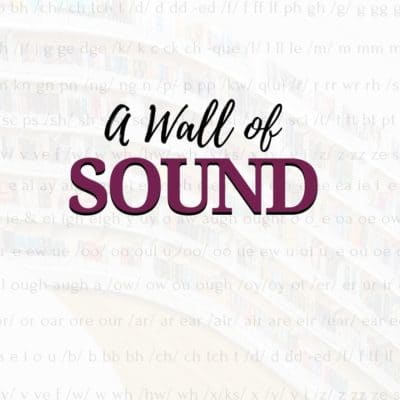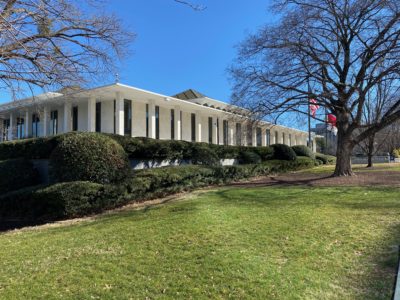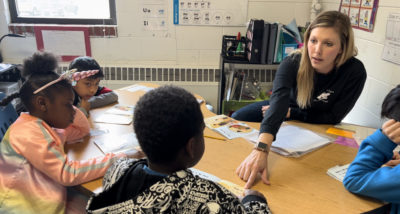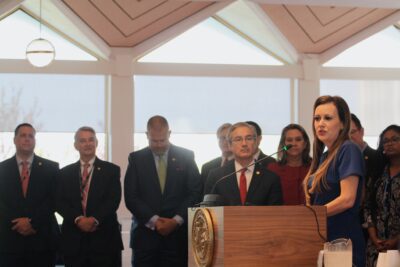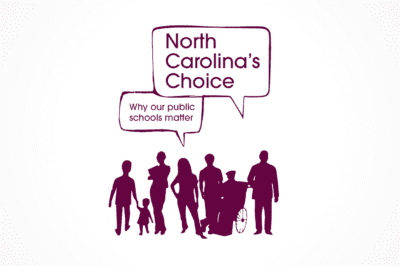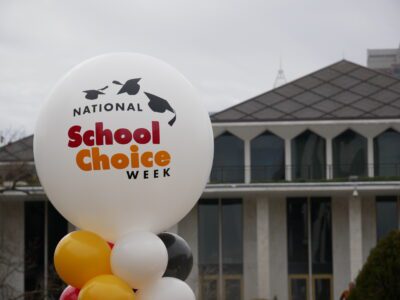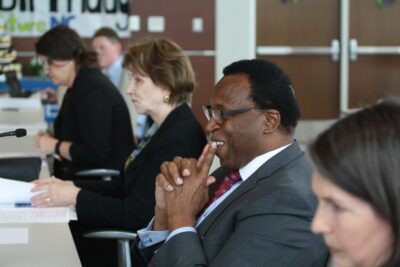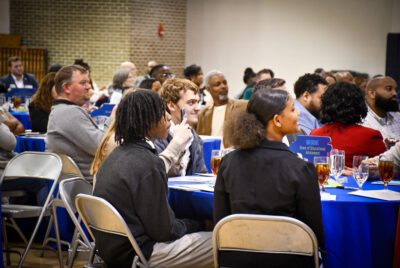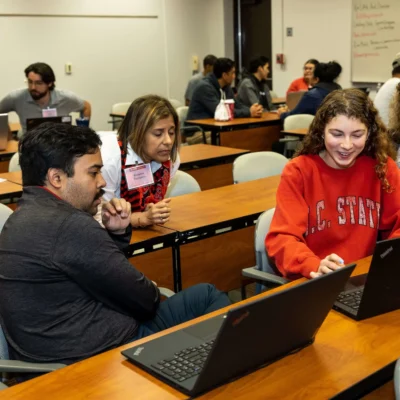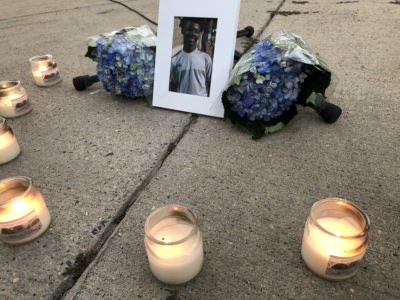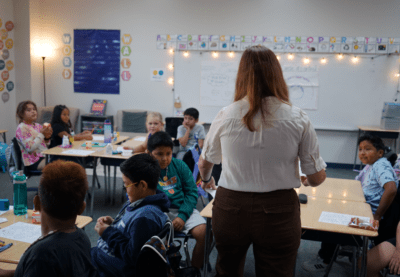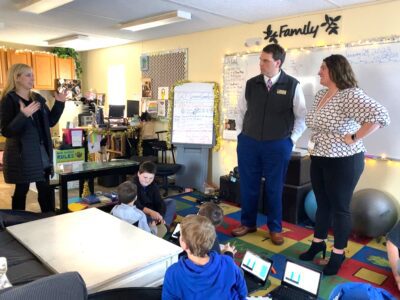
The race for superintendent of public instruction between the Democratic candidate Mo Green and the Republican candidate Michele Morrow is garnering national attention. That will only intensify as early voting opens on Oct. 17 and election day nears on Nov. 5.
But the results of that election will be felt locally by students and educators in schools and communities across North Carolina.
In the coming weeks, voters will have several opportunities to get to know the candidates better.
BEST NC is hosting a conversation with the candidates on Sept. 12 at noon, moderated by Chris William. The event is by invitation only, but it will be available online following the event.
LatinxEd is hosting a fireside chat with the candidates on Sept. 13 at 9 a.m., moderated by Xavier Adams, the 2022 Beginning Teacher of the Year. Here is more information.
NC PTA and Public Schools First NC are hosting a candidate forum on Sept. 14 at 10 a.m., moderated by Jeff Tiberii. Here is more information on how to register to watch a livestream.
Moore County Schools in partnership with the Public School Forum plans to host a debate on Oct. 14 that will be televised on WRAL as an episode of Education Matters.
Green prioritizes these issues, which he calls pillars, on his campaign website: “revere public school educators, celebrate the good in public education, ensure safe, secure learning environments, enhance parent and community support, prepare each student for their next phase in life, and invest fully in public education.” His campaign recently posted his “full vision, direction, and plan.”
Morrow prioritizes these issues on her campaign website, which includes her position on safe schools, academics first, parent-friendly schools, American unity and patriotism, getting D.C. out of N.C. schools, and ending wasteful spending.
EdNC surveyed our readers, attended campaign events, reviewed candidate websites, looked at national polls, checked Google search trends across the state, talked to principals, and read back through our own reporting to come up with this list of top 10 education issues in the 2024 election and these questions.
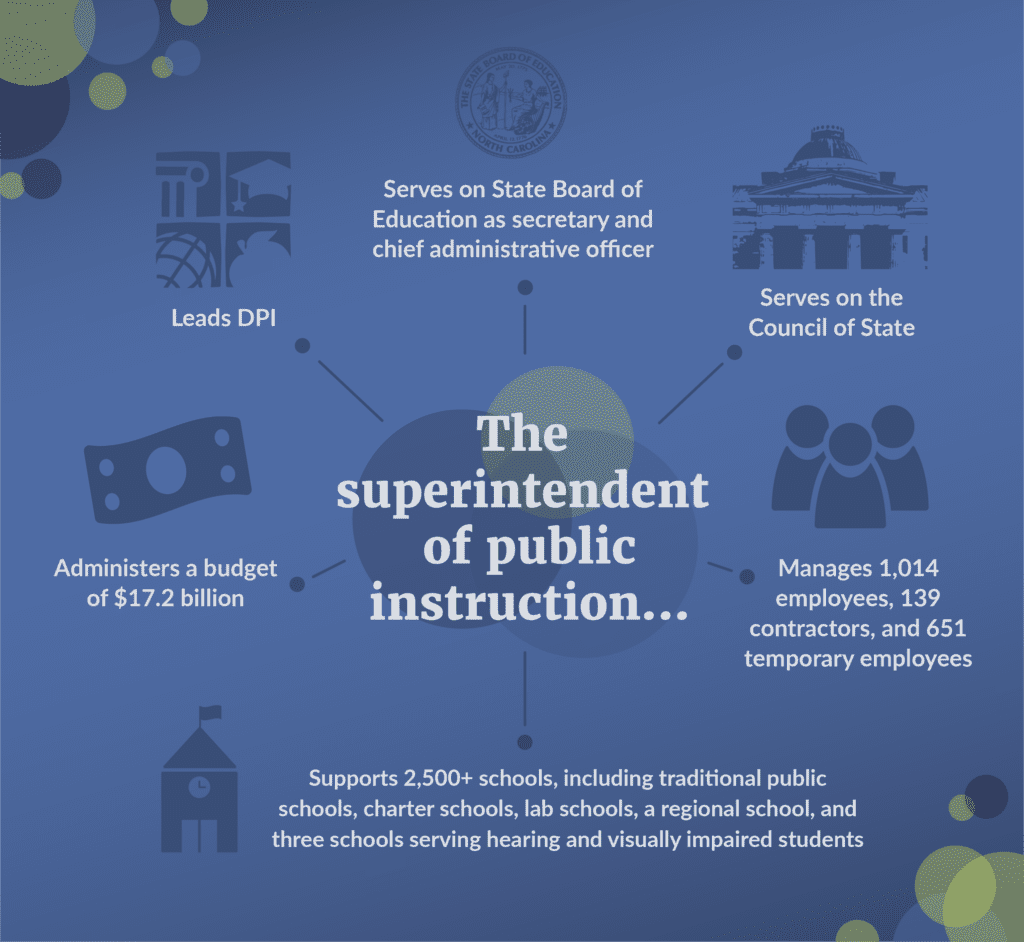
The top 10
#1 Funding
The superintendent does not have power over how revenue for education is generated, the legislature controls state appropriations, the state is one of just a handful of states to use a resource allocation model to disperse funding to districts, and the classroom teacher allotment drives most of the spending.
What is your position on the adequacy of funding, federal funding, the need for audits of DPI and the districts, and the possible shift to a weighted student funding formula?
How would you explain your role in administering DPI’s $17.2 billion budget?
On the question of funding, we hope candidates will get more specific between now and election day.
Green intends to advocate for more money, but what is his plan to garner buy–in across party lines?
Morrow has indicated that she believes spending is wasteful. Some examples would be helpful. She has indicated she wants to get D.C. out of N.C. education. Does that mean she intends to champion declining the more than a billion dollars annually – not including child nutrition – the state receives in federal funding, and if so, what’s the plan for the loss of funding?
#2 Educator pay
What should the starting salary and average salary for teachers be in North Carolina?
What is your position on the proposed teacher licensure model including corresponding levels of pay?
Since principals are the #2 factor in student achievement and the #1 factor in teacher recruitment and retention, do you intend to propose adjustments to the principal pay scale?
#3 Child care access and affordability
More than 80% of brain development happens before kindergarten. What is the role of the state superintendent in supporting learning before children enter kindergarten or pre-K?
What is the role of public schools in providing access to pre-K?
#4 Governance of our public schools
We have the Governor, the legislature, the chair of the state board of education, the state board of education, the Superintendent of Public Instruction, the Department of Public Instruction, 115 school boards, 115 superintendents, 200+ charter schools with more on the way, and 100 county commissions that fund local education. And that doesn’t include the courts.
Who is in charge? Who should be held accountable? Where do you think the superintendent has power in this governance structure?
Running for office is different from leading in office. What will be your approach to governance relative to the legislature, the state board, the superintendents of the districts, charter school leadership, employees of DPI, and voters? How will you prioritize those stakeholder relationships? Where do students fit into your priorities?
#5 Student performance and school accountability
How should schools be held accountable for student performance?
What is your plan for low performing schools, known also as schools that need support?
What are the pros and cons for students of grade retention?
Do you have a plan to provide exceptional services to the 16 categories of exceptional students?
How do you think the history of segregation, integration, and resegregation impact student performance and school accountability, and how will it impact your leadership and administration?
#6 The importance of literacy and the science of reading
As state superintendent, how will your leadership continue to champion the implementation of effective literacy strategies for all K-12 students, building on the foundation of the early literacy work being done under the Excellent Public Schools Act of 2021?
#7 The expansion of school choice
What is the role of public schools in offering choice to students and families?
What percent of students should be educated in our public schools?
#8 Career readiness, postsecondary access and affordability, and attainment
What is the role of the superintendent and DPI in ensuring North Carolina meets the statewide attainment goal of 2 million North Carolina residents earning a postsecondary degree or credential by 2030?
#9 School safety
How are you going to ensure all students feel safe in public schools?
What is your plan to address school safety when it comes to external threats?
#10 The teacher pipeline
What is your best idea to recruit and retain teachers, increase diversity, and strengthen the teacher pipeline in all 115 school districts across all subject areas?
More on election priorities
The 56th Annual PDK Poll of the public’s attitudes toward public schools was recently released. You can see how some of these issues poll national across party lines here:
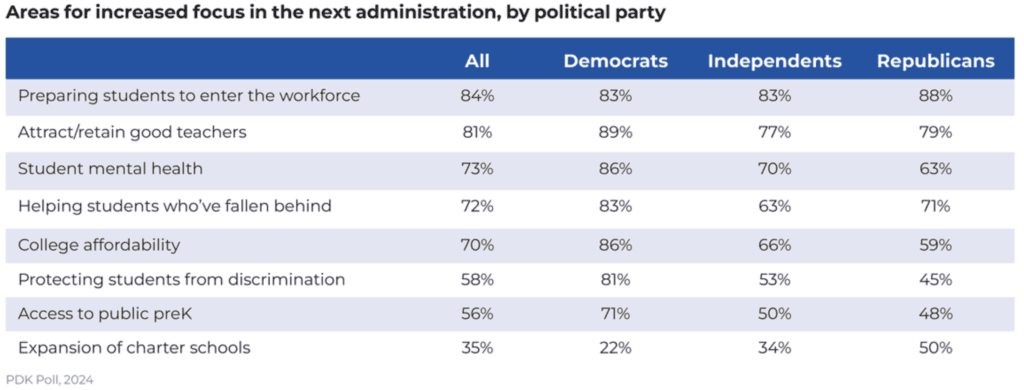
What election issues are North Carolinians searching on Google? Not education. The top 10 search issues include social security, crime, health care, the economy, abortion, voter registration, unemployment, immigration, race, and inflation.
Please email me your top issues and your questions for candidates at mrash at ednc.org.


